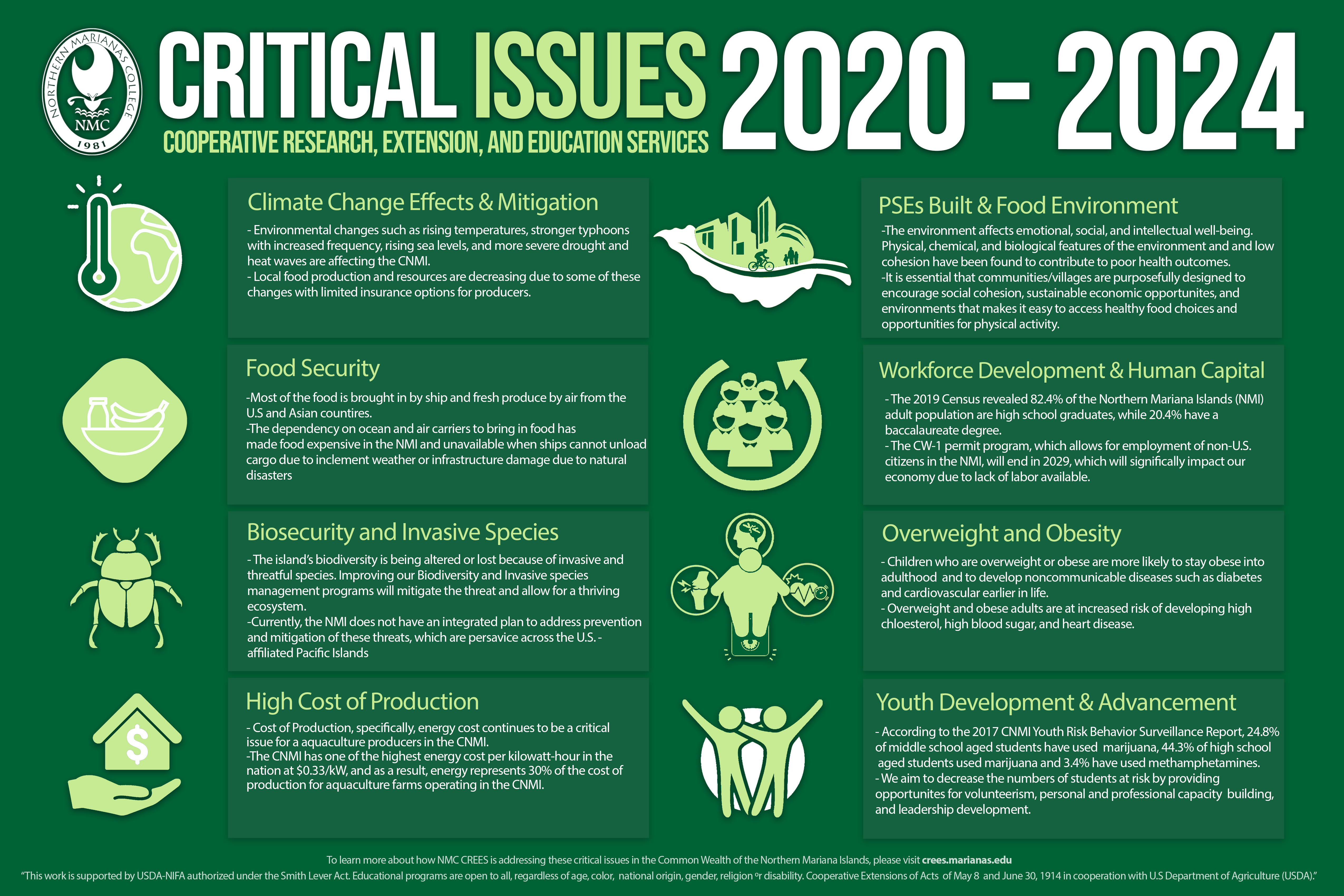The Northern Marianas College-Cooperative Research Extension and Education Service (NMC-CREES) provides quality technical programs, services and information to benefit the people, the environment and the economy of the Commonwealth of the Northern Mariana Islands (CNMI). With continuous interaction, collaboration and a unified direction, the department is dedicated to help improving the economic well- being, living conditions, and overall quality of life of its stakeholders. Our stakeholders include famers, families, youth, individuals, government agencies, and various ethnic communities.
In relation to other Land Grant Institutions, NMC-CREES is small in size, with 30 employees distributed amongst the three most populated islands of Saipan, Tinian and Rota. In order to provide equitable service to our stakeholders, NMC-CREES relies on key partnerships with government agencies, non-profit organizations and other entities throughout the region. Collaboration enables us to promote our educational programs, extension services and research projects, while strengthening our professional capacity to aid their respective organizations or agencies.
Extension services and research projects are primarily stakeholder driven as a result of the growing needs and challenges that the CNMI faces. Concerns are raised by the CREES Advisory Council which is comprised of various facets of our community to include representatives from the respective youth, family, government, business and agriculture areas.
The NMC-CREES mission to be the leader in providing quality programs, services, and information in order to improve the CNMI's people, environment, and economy through agriculture, family and consumer sciences - is accomplished through a range of technical programs through its two divisions of Agriculture Research & Extension (ARE) and Family & Consumer Sciences (FCS). NMC-CREES' integrated approach amongst its two divisions encourages a multi-discipline and multi-level collaboration that promotes efficiency and strong communication among scientists and extension faculty. This team effort aims to address the National Goals identified by the United States Department of Agriculture:

/dean-pattypsd.jpg)
/dr-verma.jpg)
/mike.jpg)
/tayna.jpg)
/dean-pattypsd.jpg)